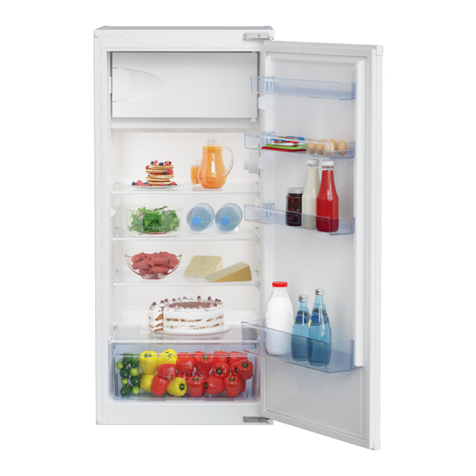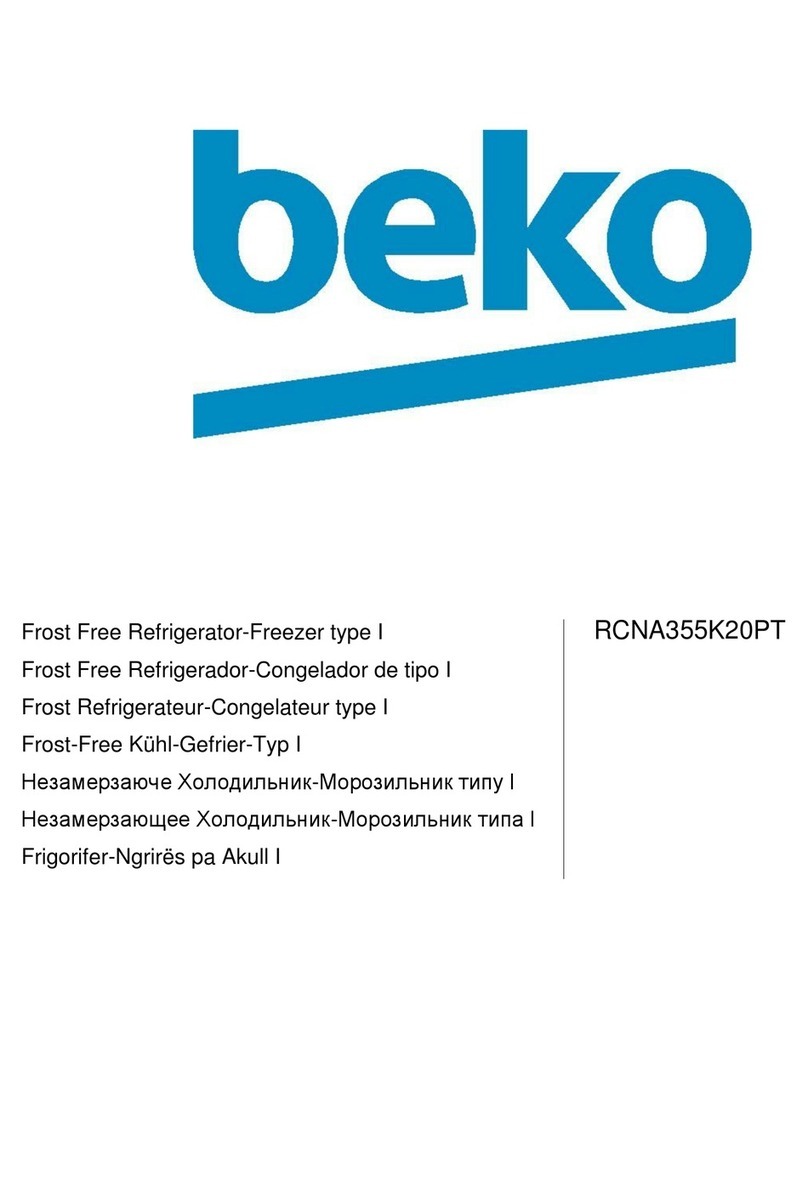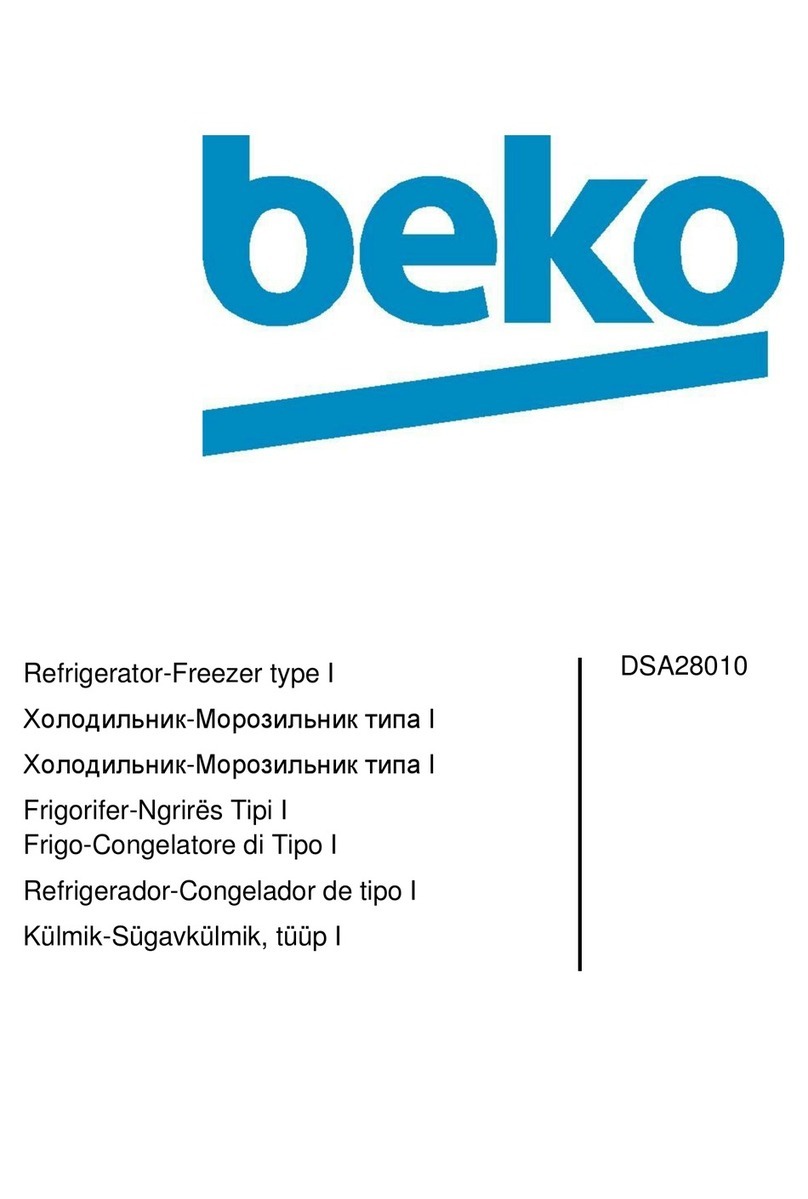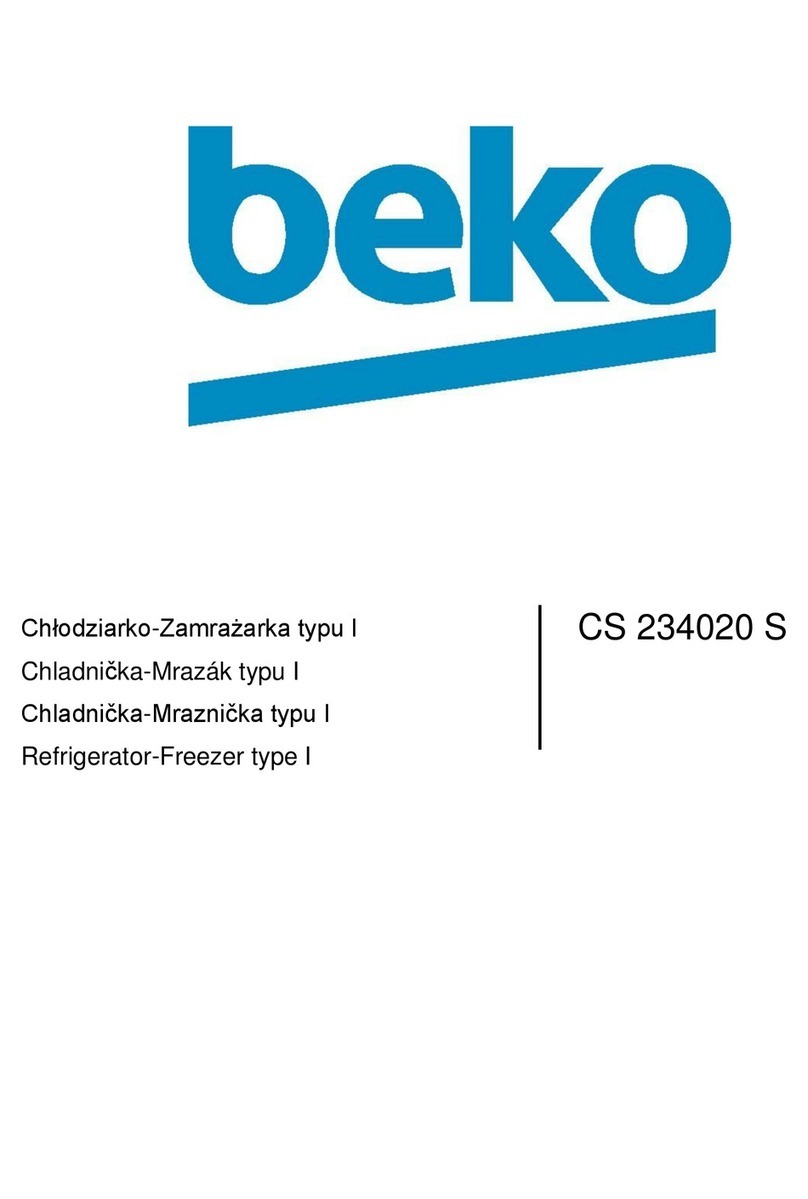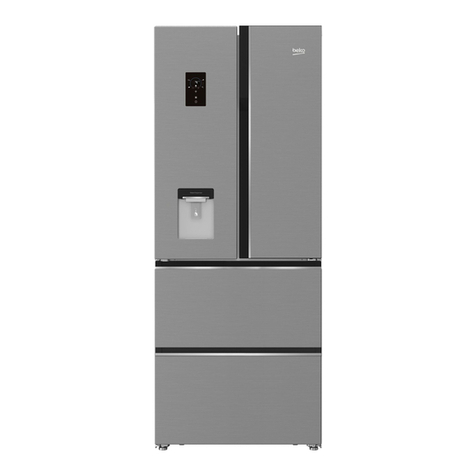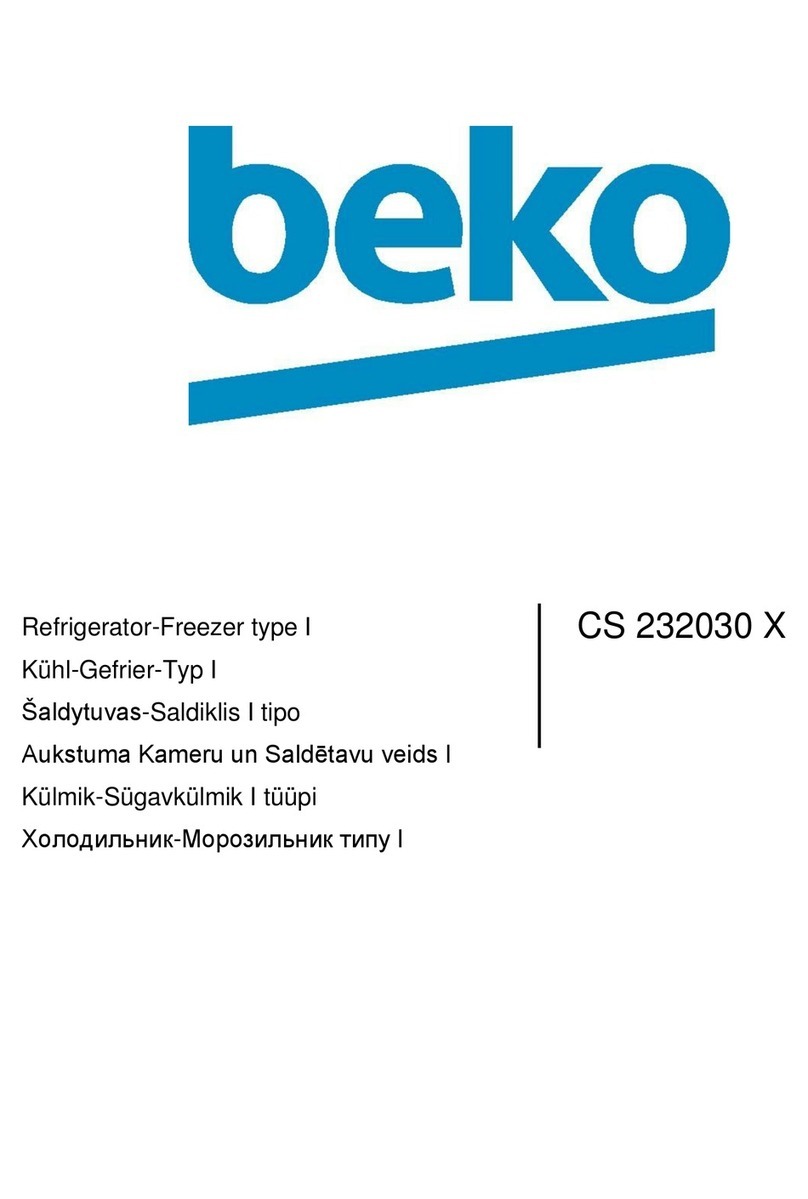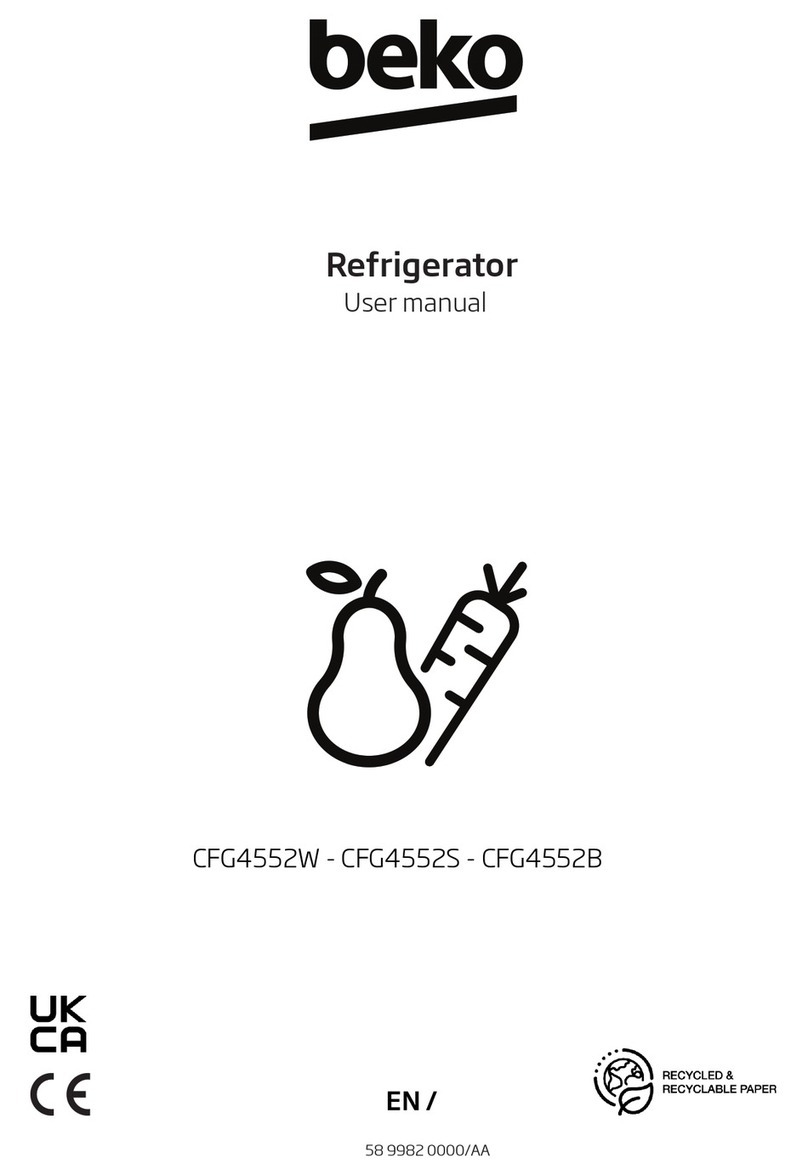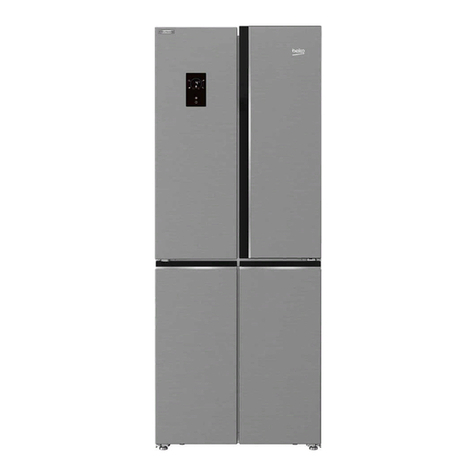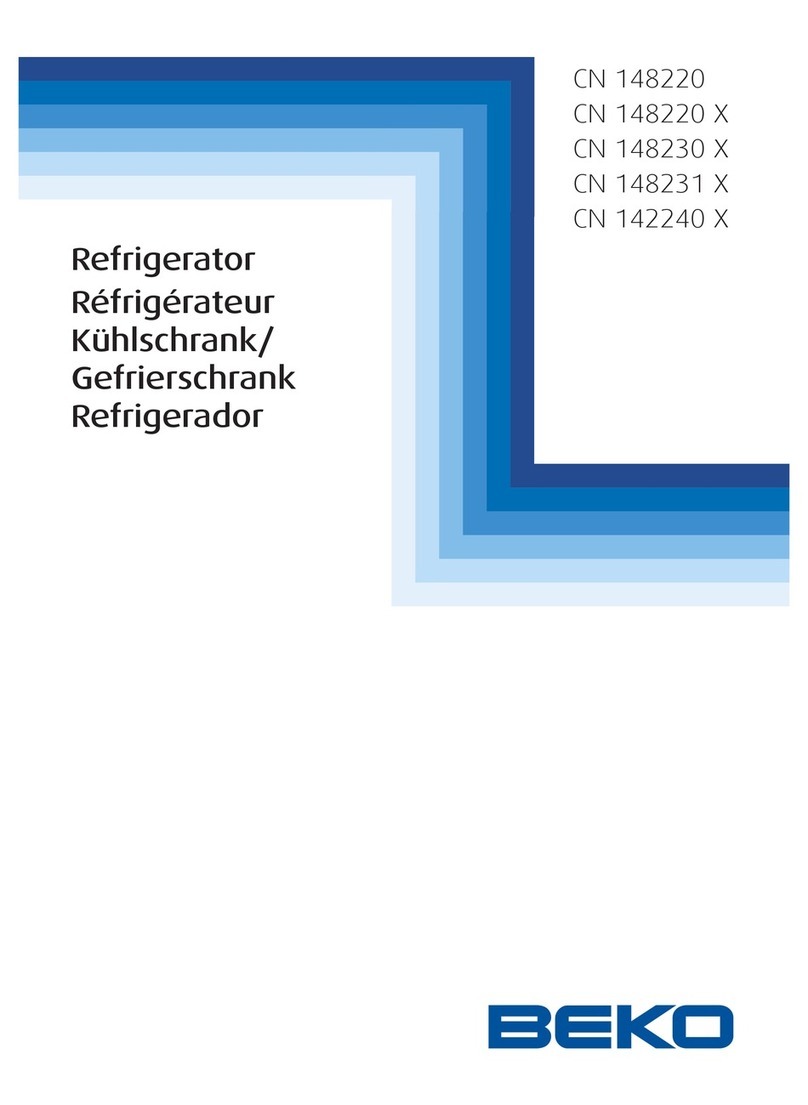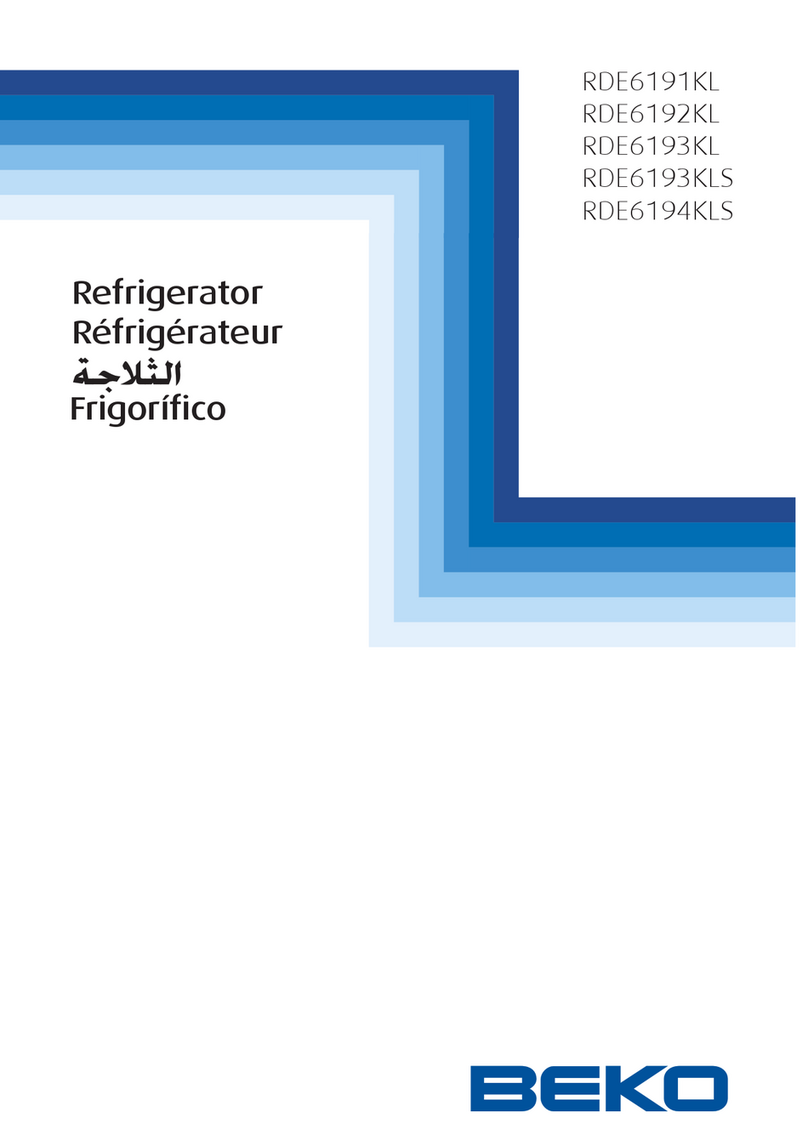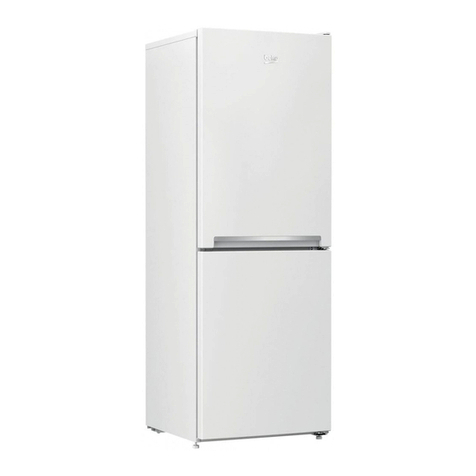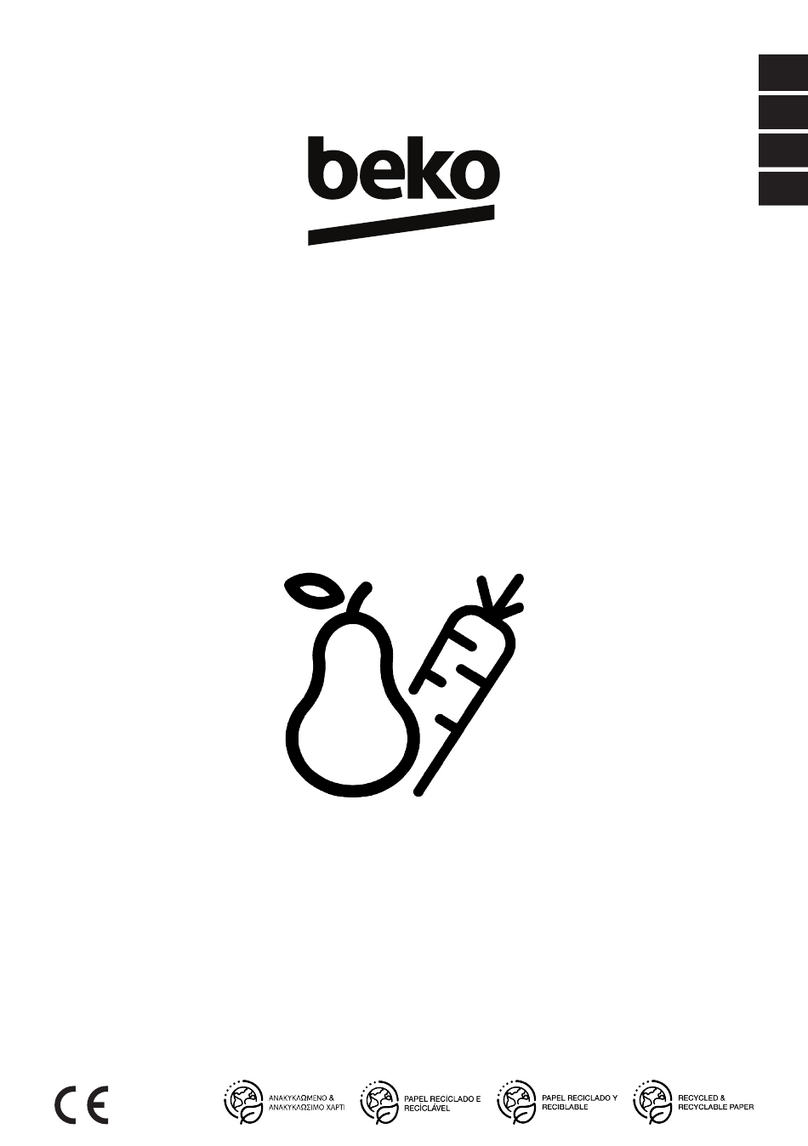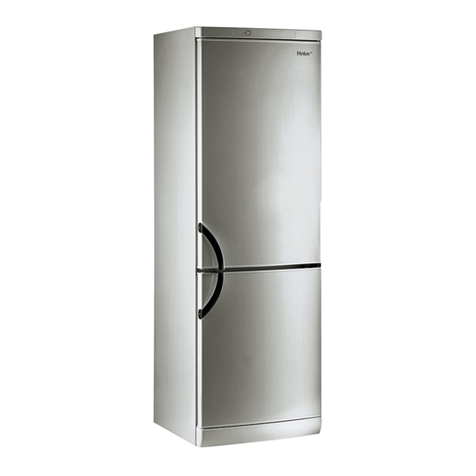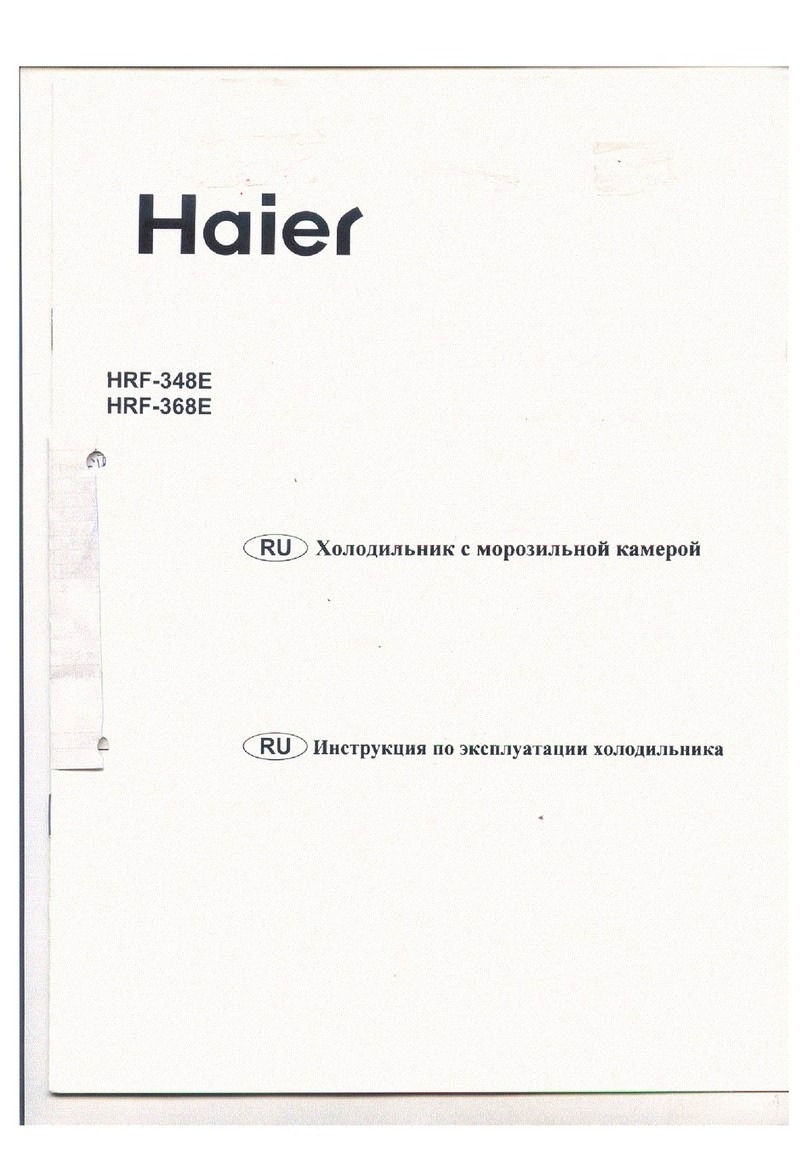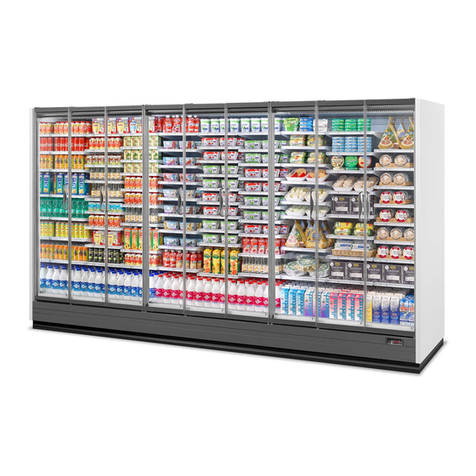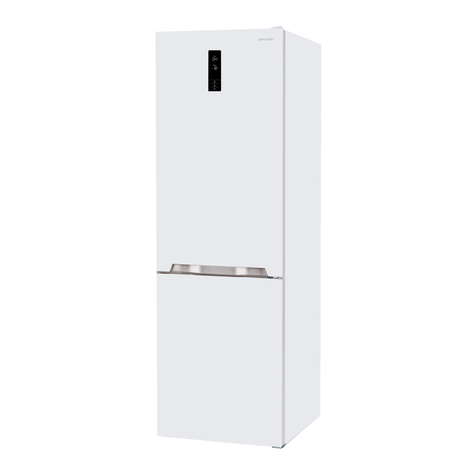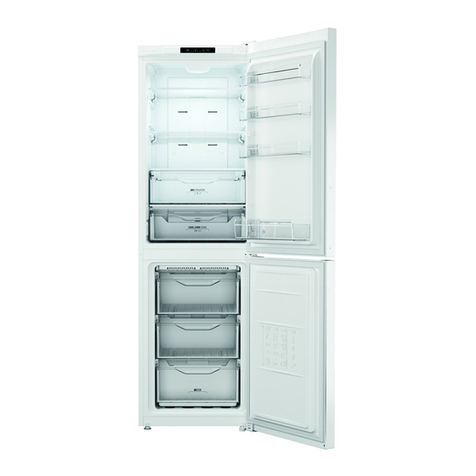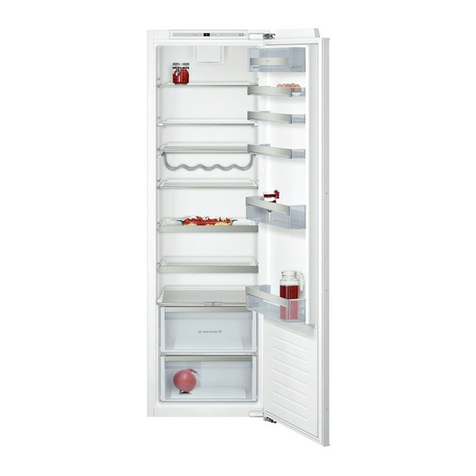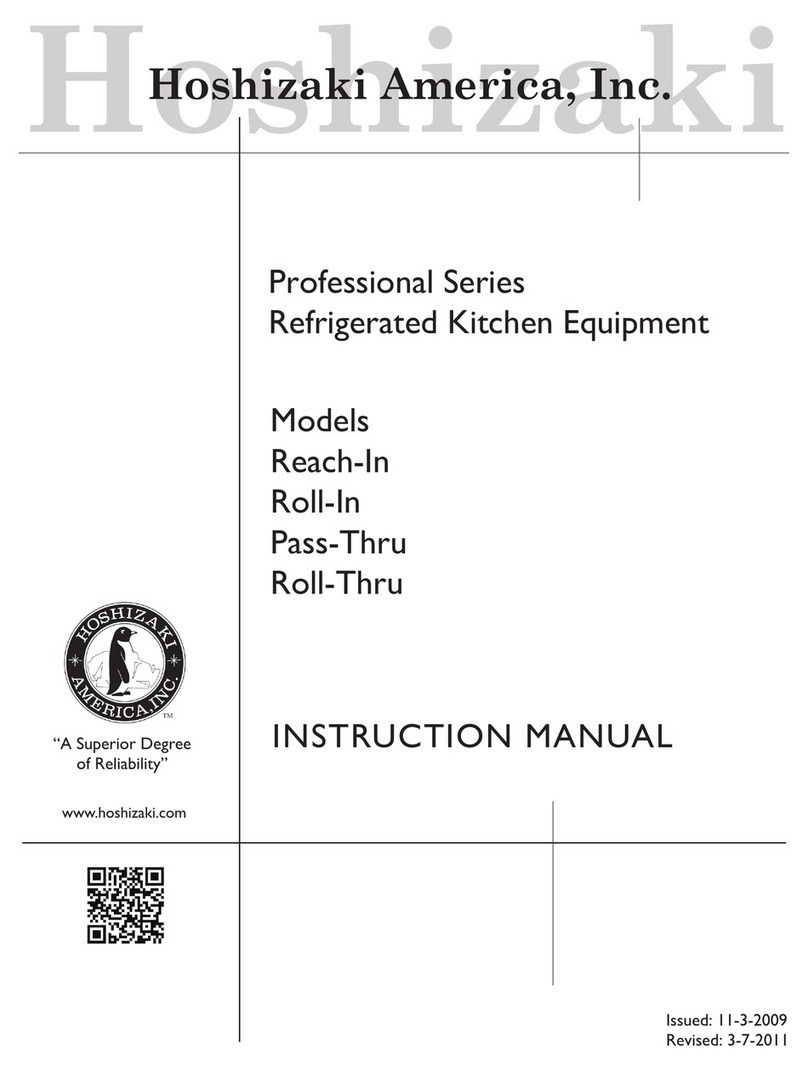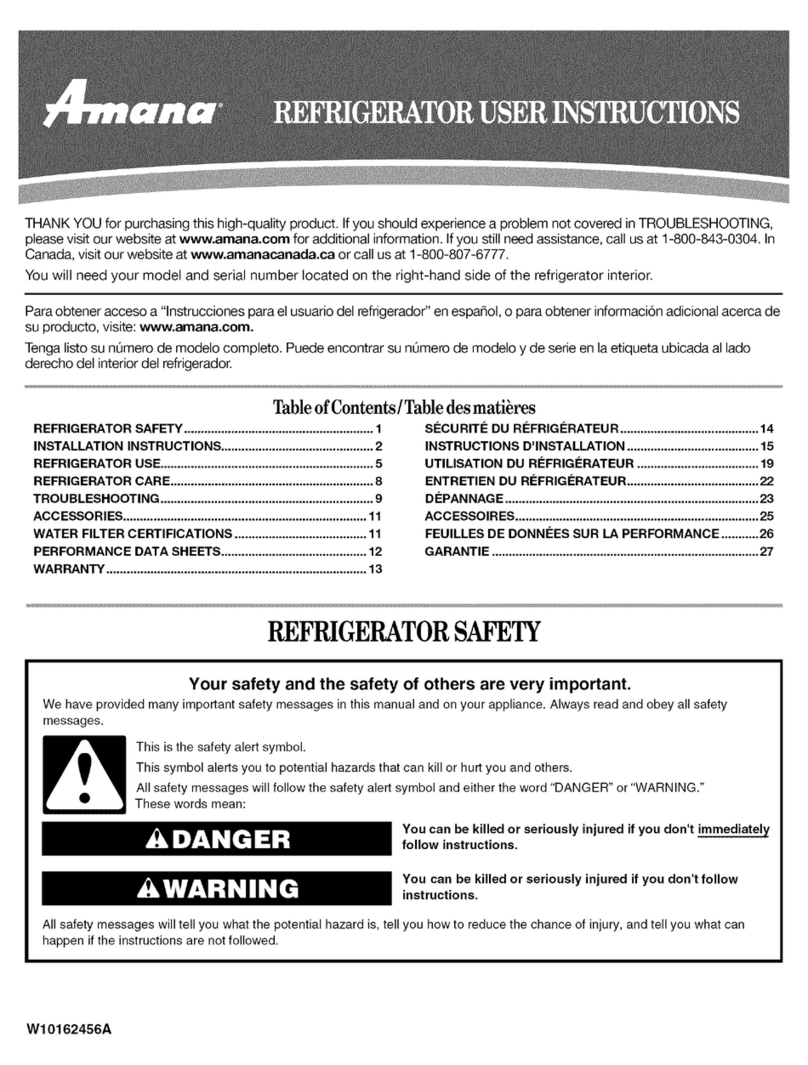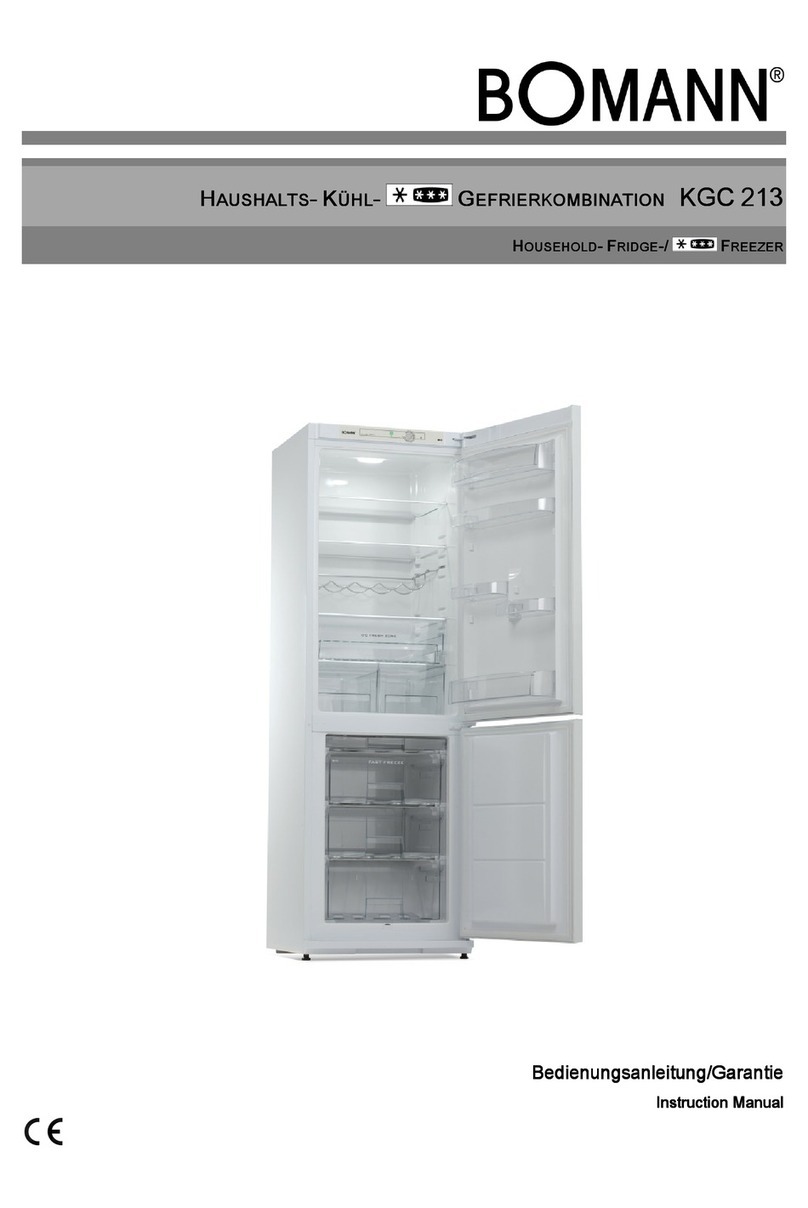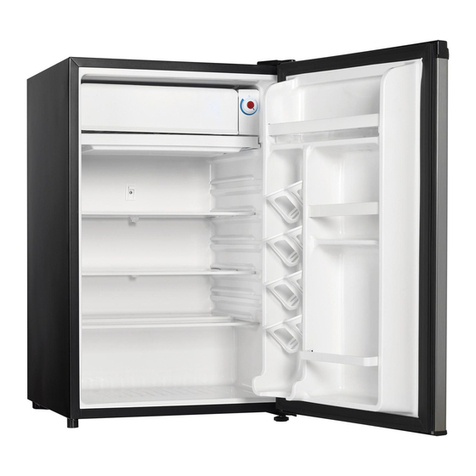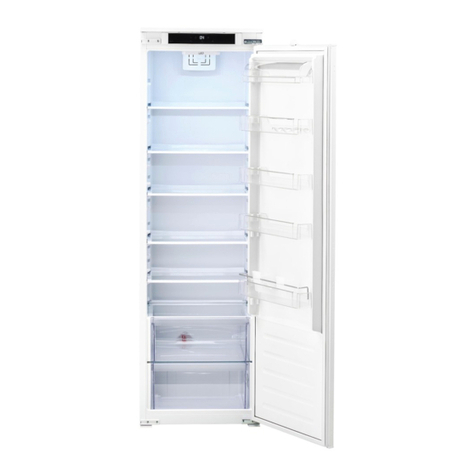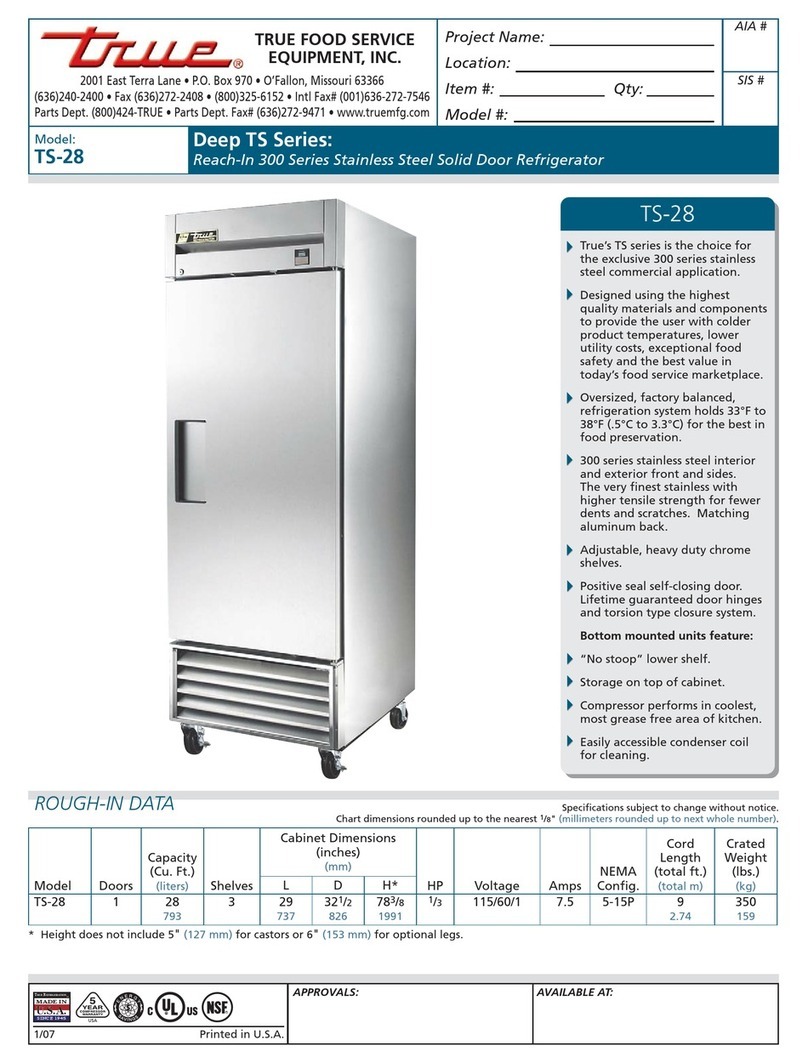EN5
Placing and assembly of your refrigerator
3
• Please remember that the
manufacturer shall not be held
liable if the information given in the
instruction manual is not observed.
This product is designed for
domestic use.
should be kept for future transportations or
moving.
Points to be considered when
transporting the product:
1. Your refrigerator must be emptied and
cleaned prior to any transportation.
2. Shelves, accessories, crisper and etc. in
your refrigerator must be fastened securely
by adhesive tape against any jolt before
repackaging.
3. Packaging must be tied with thick tapes and
strong ropes and the rules of transportation
printed on the package must be followed.
Please remember…
Every recycled material is an indispensable
source for the nature and for our national
resources.
If you wish to contribute to recycling the
packaging materials, you can get further
information from the environmental bodies or
local authorities.
If the entrance door of the room where the
refrigerator will be installed is not wide enough
for the refrigerator to pass through, than call
the authorized service to have them remove
the doors of your refrigerator and pass it
sideways through the door.
1. Install your refrigerator to a place that allows
ease of use.
2. Keep your refrigerator away from heat
sources, humid places and direct sunlight.
3. There must be appropriate air ventilation
around your refrigerator in order to achieve an
efficient operation.
If the refrigerator is to be placed in a recess in
the wall, there must be at least 5 cm distance
with the ceiling and at least 5 cm with the wall.
If the floor is covered with a carpet, your
product must be elevated 2.5 cm from the
floor.
4. Place your refrigerator on an even floor
surface to prevent jolts.
5. Do not keep your refrigerator in ambient
temperatures under 10°C.
Prior to operating your refrigerator, please
read the instruction manual carefully that
includes important information such as
installation, usage and maintenance of your
product.
Preparation
Your refrigerator should be installed at least
30 cm away from heat sources such as hobs,
ovens, central heater and stoves and at least
5 cm away from electrical ovens and should
not be located under direct sunlight.
• The ambient temperature of the room where
you install your refrigerator should at least be
10°C. Operating your refrigerator under cooler
conditions than this is not recommended with
regard to its efficiency.
• Please make sure that the interior of your
refrigerator is cleaned thoroughly.
• If two refrigerators are to be installed side by
side, there should be at least 2 cm distance
between them.
• Your refrigerator must run smoothly without
any vibration. To ensure this, maintain the
balance of your refrigerator on the floor by
turning the adjustable front legs clockwise or
counterclockwise. This should be done before
the food is placed in the refrigerator.
• When you operate your refrigerator for
the first time, please observe the following
instructions during the initial six hours.
- Temperature adjustment button should
not be turned off.
- The door should not be opened
frequently.
- It must be operated empty without any
food in it.
- Do not unplug your refrigerator; if a
power failure occurs out of your control,
please see the warnings in section “Things to
be done before calling the authorized service”.
• Original packaging and foam materials
